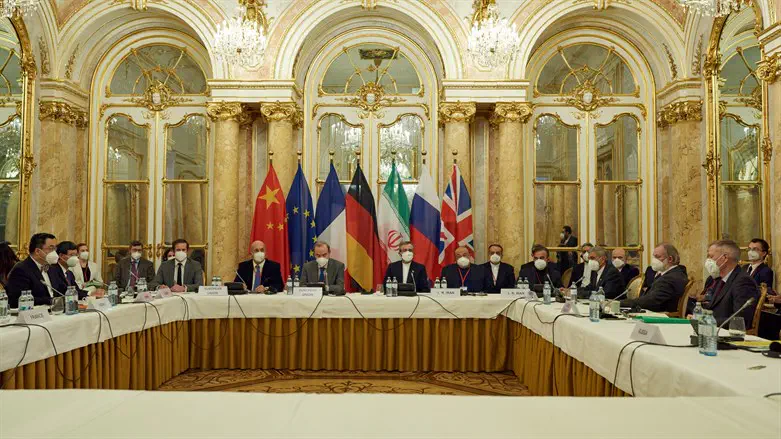
House Democrats expressed concerns on Wednesday about the looming Iran nuclear deal, The Hill reports.
In a statement and a press conference, 18 lawmakers raised everything from concerns about the negotiations to outright opposition to reviving the deal, formally called the Joint Comprehensive Plan of Action (JCPOA), which was implemented in 2015.
“We understand that while the recent negotiations have not concluded, we feel that we can’t stay quiet about the unacceptable and deeply troubling turn that these results have reportedly taken,” Rep. Elaine Luria (D-VA) told reporters.
Rep. Grace Meng (D-NY), who opposed the deal in 2015, said she was again concerned by public information becoming available about the negotiations.
“Any new agreement with Iran must be based on the situation that is on the ground today, not the one from seven years ago,” Meng said. “This means an agreement that is comprehensive and addresses the full range of threats that Iran poses to the region including its nuclear program, ballistic missile program and its funding of terrorism.”
Rep. Josh Gottheimer (D-NJ), said in a statement that he was concerned about the US lifting the foreign terrorist organization (FTO) designation against Iran’s Revolutionary Guard Corps, which was placed on the list in 2019. He also raised concerns that the deal would allow Russia to continue doing energy business with Iran.
“Are we seriously going to let war criminal, Vladimir Putin, be the guarantor of the deal?” he said. “We must address the threat of a nuclear-armed Iran, stand strong against terrorists, and protect American values and our allies.”
Some Democrats, such as Rep. Dean Phillips (D-MN), said that they weren’t opposed to doing a deal, but opposed one that wouldn’t prevent Iran from obtaining a nuclear weapon.
“I want to make something abundantly clear. I am not opposed to an agreement,” Phillips said. I am opposed to an agreement that does not absolutely, positively prevent Iran from either producing or obtaining nuclear weapon. I believe I speak for an overwhelming majority of the United States Congress to that end.”
Iran has gradually scaled back its compliance with the 2015 deal, in response to former US President Donald Trump’s withdrawal from the agreement in May of 2018, but has held several rounds of indirect talks with the US on a return to the agreement.
Negotiations nearly reached completion last month before Moscow demanded that its trade with Iran be exempted from Western sanctions over Ukraine, throwing the process into disarray.
On Wednesday, US Secretary of State Antony Blinken said he was "not optimistic" about the prospects to revive the 2015 Iran nuclear deal.
“I would say simply that I’m not overly optimistic at the prospects of actually getting an agreement to conclusion, despite all the efforts we put into it and despite the fact that I believe … our security would be better off. We’re not there,” he told NBC News.
Lawmakers in Washington have several times expressed concerns about the pending Iran agreement.
Last month, a bipartisan group of 21 Members of Congress, led by Gottheimer, Luria and Tom Reed (NY-23), urged the Biden administration to address concerns surrounding the looming agreement with Iran.
The lawmakers noted that, with reports indicating that the Vienna negotiations are nearing conclusion, there are several critical concerning issues that remain on the table — including the potential lifting of the Foreign Terrorist Organization (FTO) designation of the Islamic Revolutionary Guard Corps (IRGC) and of sanctions placed on the Supreme Leader.
A month earlier, nearly 200 House Republicans wrote to Biden and warned that any nuclear deal made with Iran without Congress' approval "will meet the same fate" as the 2015 agreement.

